Senior Iranian official: US reluctance to fully drop sanctions main challenge for progress of Vienna talks
A senior official at Iran’s Foreign Ministry says the US is unwilling to remove the sanctions it has imposed on Iran and this is the main hurdle that impedes the progress of negotiations in the Austrian capital whose main goal is to secure the removal of all the illegal sanctions targeting Tehran.
“Now, it is crystal clear that the US reluctance to fully drop the sanctions is the main challenge for the progress of negotiations,” the unnamed official was quoted by the ministry as saying on Sunday..
“We believe that anytime the US administration abandons the maximum pressure campaign, and Europeans demonstrate necessary political determination, the way will be opened for the swift attainment of an agreement,” he added.
The official explained that the new Iranian administration of President Ebrahim Raeisi has adopted a “pragmatic approach” and has striven to send a very capable negotiating team to Vienna “with a mandate to reach a good deal.”
“One of the issues emphasized before the start of the present round of negotiations was that the Islamic Republic of Iran should participate in the Vienna talks with proper decision-making power and expert capacity so as to make sure that, to a possible extent, the texts and drafts and positions of the Iranian delegation are clear of any deficiencies.”
The seventh round of high-level talks between Iran and the other parties to the Iran nuclear agreement was held in the Austrian capital between Monday and Friday, after a five-month hiatus.
High on the agenda of the talks was the removal of US sanctions against Iran that would pave the way for the US return to the Joint Comprehensive Plan of Action (JCPOA), commonly known as the Iran nuclear deal, three years after it unilaterally left the deal and reinstated economic sanctions on Iran.
At the talks, the first under President Raeisi, the Iranian delegation presented two detailed draft texts: one on the removal of US sanctions and the other on Iran’s return to its nuclear commitments under the JCPOA.
Iran began to ditch some of its nuclear undertakings in a legal move under the JCPOA, which grants the compliant party the right to suspend its commitments in case of a non-performance by the other side.
‘Draft texts based on outcome of last 6 rounds’
During the briefing, the senior Iranian official said Iran’s proposed draft texts were prepared based on the draft texts of the last six rounds, noting that Iran applied certain editions and offered new proposals based on those texts.
The unnamed official suggested that the US and its European allies were surprised at Iran’s draft texts, which were “in full compliance with the JCPOA, the UNSC Resolution 2231 and common principles of the past negotiations,” saying that is why they immediately proposed the idea of “halting the talks and returning to capitals for consultations.”
Nevertheless, the Iranian delegation was prepared to continue the negotiations until whenever necessary, the official added.
The Foreign Ministry official explained that the US and its European allies were not able to find any legal deficiency in Iran’s drafts or describe them in contradiction with the JCPOA, but also emphasized that the drafts can be negotiated.
Indeed, “we have encouraged the other parties to table their own drafts and clear proposals on the basis of common principles,” the official remarked, stressing that Iran expects the other parties to arrive in Vienna next time “with precise and logical written responses and perhaps new practical ideas.”
“In that case, one can hope for serious negotiations on the available draft documents. It is necessary that the other parties, too, adopt an engaging and flexible approach.”
The official also said the mechanism and time for the verification of US sanctions and issues related to receiving guarantees to prevent the re-withdrawal of the US from the nuclear deal are examples of pending issues that will be later discussed in future talks.
‘Nothing is agreed until everything is agreed’
The official further criticized the Western countries’ unwillingness to re-negotiate the drafts formulated in the last six rounds and underlined that “nothing is agreed until everything is agreed.”
"...everyone agrees that the outcome of the previous six rounds of negotiations is purely 'drafts' and not 'agreements', and there is a well-known principle that “nothing is agreed, until everything is agreed,” he emphasized.
Dismissing criticisms over Iran’s new proposals, the senior Foreign Ministry official said since the proposals are “definitely based on the logic of the JCPOA, one cannot describe them as maximalist.”
“But the thing is that unfortunately, the other party has adopted a minimalist approach in terms of its commitments.”
“It was evident that the Western parties, which have come to Vienna with a desire to yield the minimum concessions and to extract the maximum concessions, were not fully satisfied with the proposed drafts and clear demands of the Islamic Republic of Iran,” the Iranian official added.
Official: We foresaw ‘non-serious’ accusations
Elsewhere during the briefing, the Iranian official pointed to recent threats by certain US lawmakers that a Republican president would once again pull the US out of the JCPOA, saying those remarks illustrate that the US cannot be considered “reliable” in the negotiations.
Therefore, the official went on, the US must present “solid and acceptable guarantees to return to the nuclear deal … They are well-aware that the Islamic Republic of Iran won’t allow that their disloyalty to their commitments – as it happened after the 2015 agreement reached – holds Iran’s economy hostage again.”
The top Iranian official also said the country’s authorities foresaw that Tehran would be accused of not being serious in the negotiations, dismissing the accusation as an Israeli job.
"We were in fact foreseeing that we would be accused of a non-serious and time-wasting attitude in negotiations, which is an accusation that is being trumpeted by the Zionists now."
“But as we saw, the performance of the Iranian delegation and the swift presentation of the carefully crafted drafts to the other party neutralized this deception to a large extent.”
“It is quite normal that the Zionist regime is not pleased with the status quo. And that is why, in the past couple of days, the Zionist regime’s media fabricated unfounded rumors and tried to negatively influence the atmosphere of the talks,” the official added.
Talks ‘professional, frank, and free from tension’
“Despite differences in the positions of the parties, it should be highlighted that last week’s talks were held in a professional, and at the same time, frank manner and the other sides proposed their views in an atmosphere free from tension,” the official pointed out.
The Iranian official explained that one point emphasized by Iranian diplomats during the latest round was that all of the sanctions that were imposed within the framework of former US President Donald Trump’s “maximum pressure” campaign – which he adopted against Tehran after his 2018 withdrawal from the nuclear pact – had the clear and stated objective of killing the JCPOA, and therefore, they must be removed altogether.
“In this respect, it has been underlined during the negotiations that until the way that sanctions are going to be removed is not clearly defined and properly enforced, the Islamic Republic of Iran cannot be expected to cease the nuclear remedial measures that have not been self-generated but were taken in reaction to the sanctions.”
The senior official also underscored that the “economic weight” of the current negotiating team outperforms the previous one, saying the reason is that the Islamic Republic of Iran believes that the issue of removal of sanctions is presently the main agenda of the negotiations, and other issues cannot be finalized unless the issue of sanctions removal is decided upon.
‘Agreement within reach if other sides have goodwill’
Concluding his remarks, the Iranian Foreign Ministry's senior official said an agreement is within reach if the other sides have goodwill.
“Contrary to the remarks of the American officials, I believe that if other parties have goodwill, and stop their futile blame game, an agreement is within reach. The Islamic Republic of Iran has put pragmatic proposals on the table and other parties should provide a proper response or present new proposals and clear ideas in writing.”
Rejecting American officials’ pessimistic assessment of the talks, the official said, “I imagine that stating such negative statements and remarks are more a negotiating tactic than being related to the substance of negotiations and are rooted in the efforts of other parties to blame Iran and put pressure on Iranian negotiators.”
“Other parties only need to show political determination and express readiness to take necessary practical steps. Then, ways will be opened for the conclusion of a deal and settlement of differences.”
Iran warns Epstein scandal may be part of Israel's political project
Iran emerges key link in China-Europe trade axis
Pezeshkian calls for mass turnout in February 11 rallies to defy foreign pressure
Leader grants pardons, sentence reductions to more than 2,000 convicts
VIDEO | Thousands protest in Australian cities against Israeli President Herzog’s visit
#IR47: Iran’s tourism boom since 1979 Islamic Revolution, driving economy, generating jobs
Palestinian activist in ICE detention 'missing' after medical emergency
Any enemy miscalculation will be met with ‘unprecedented’ response: Iran army chief


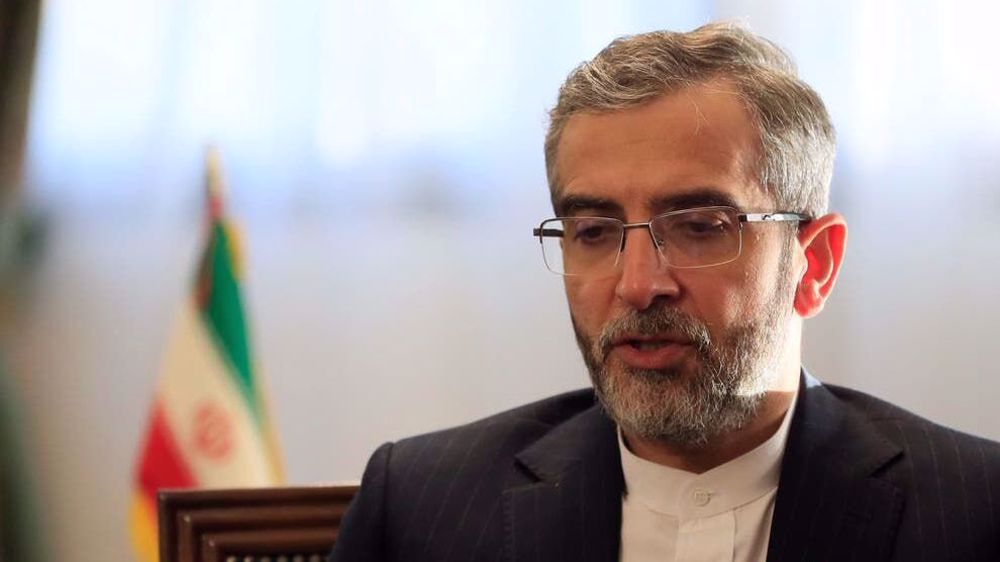
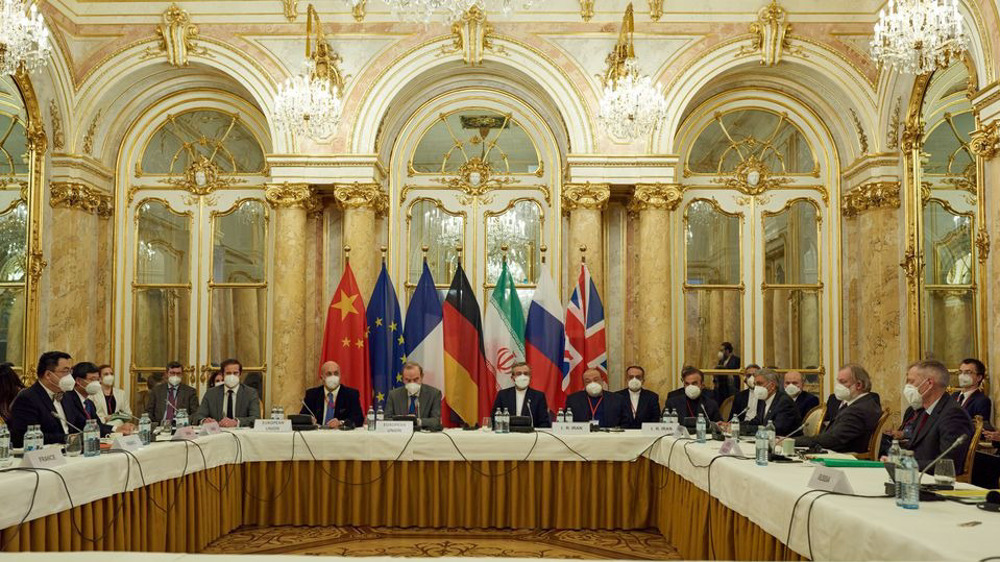
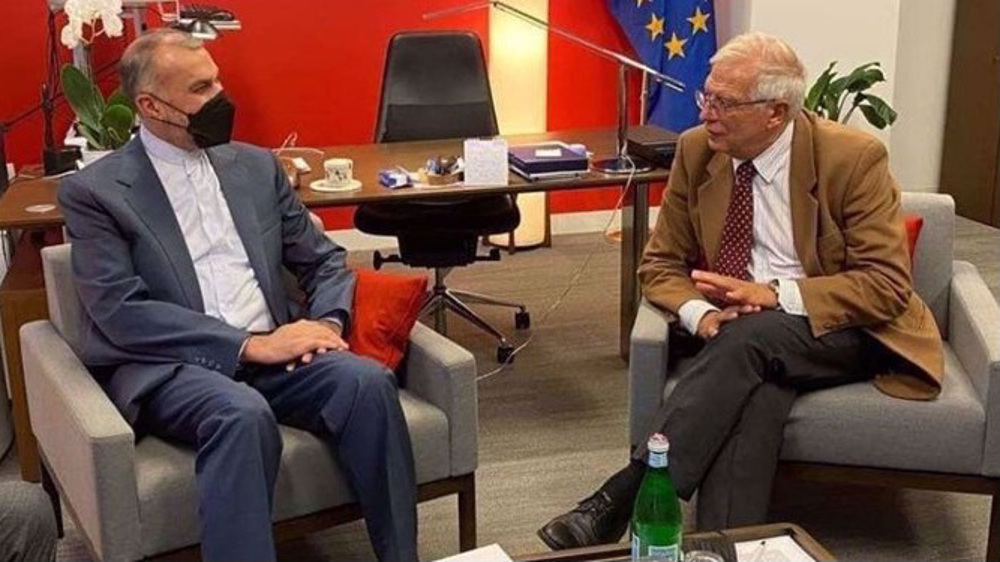

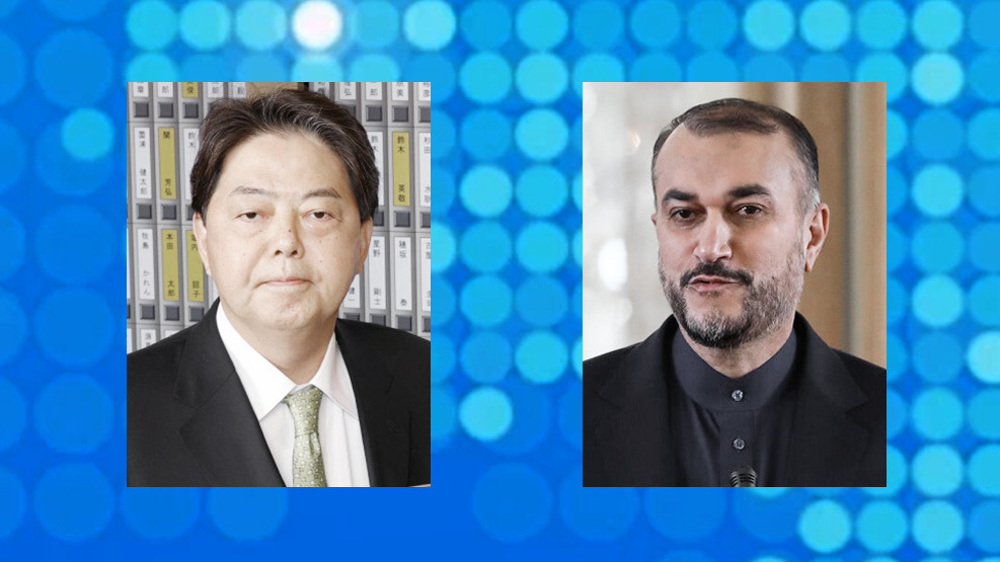
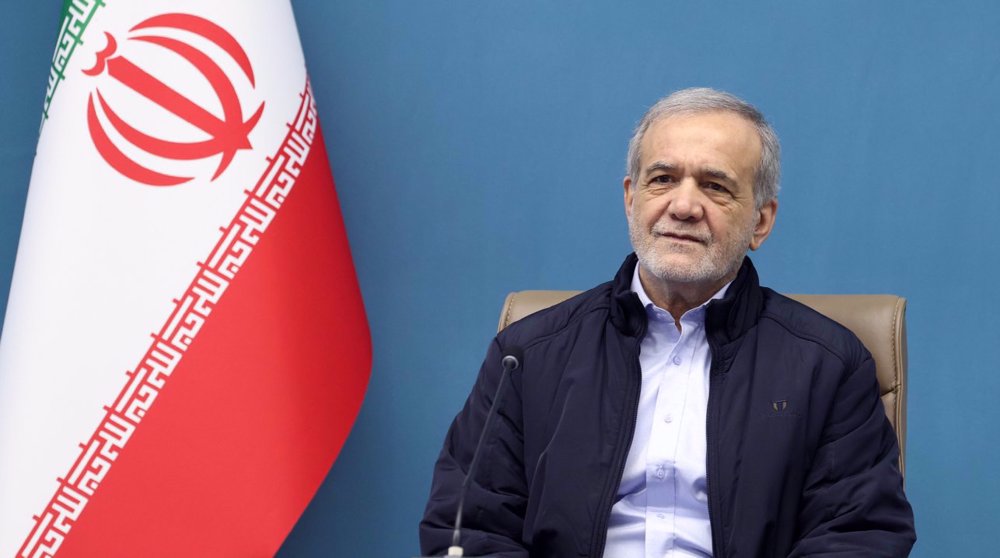
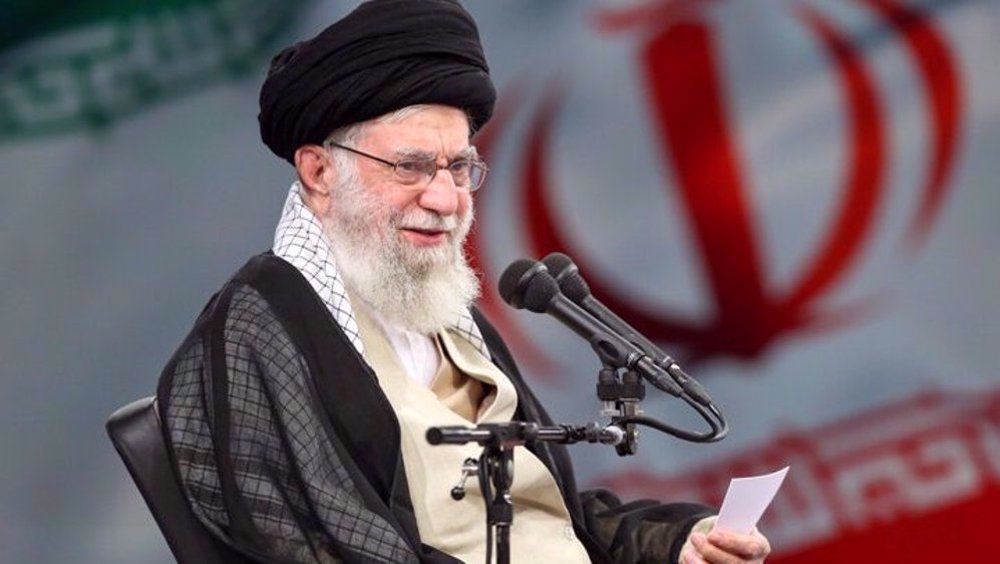
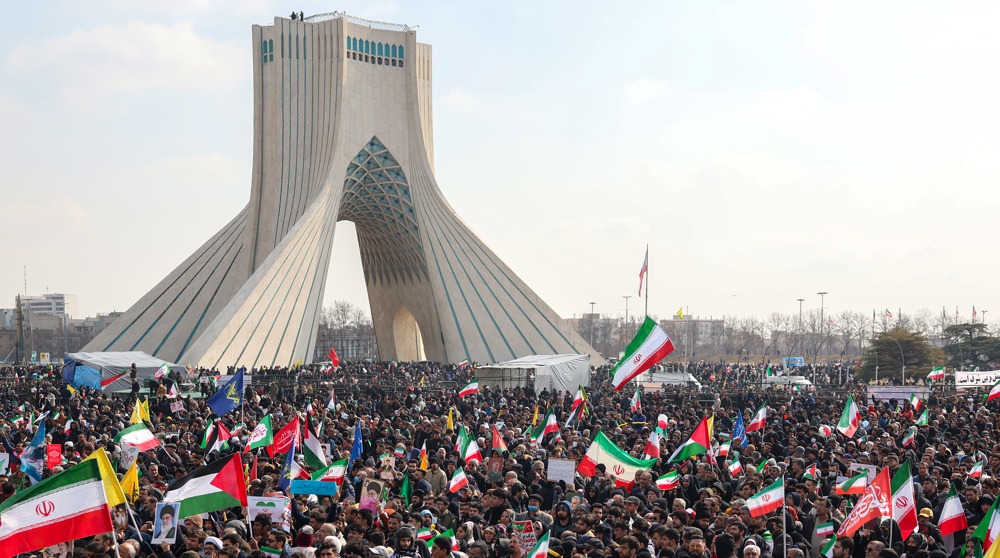



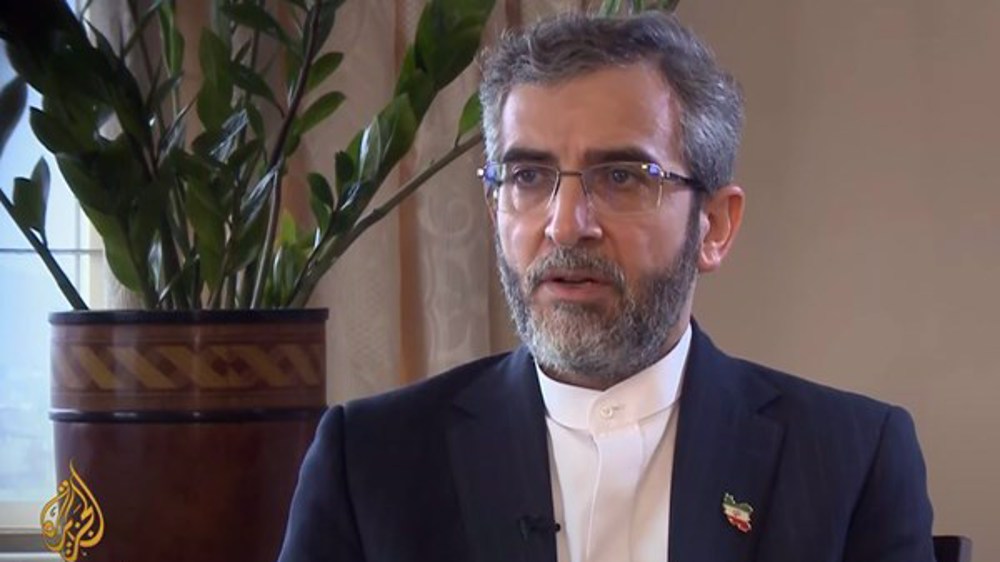
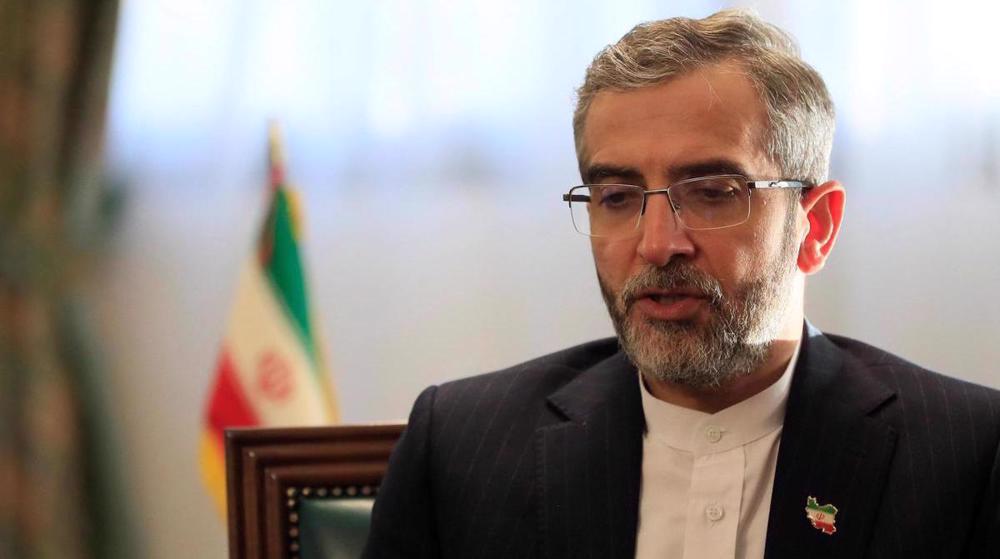
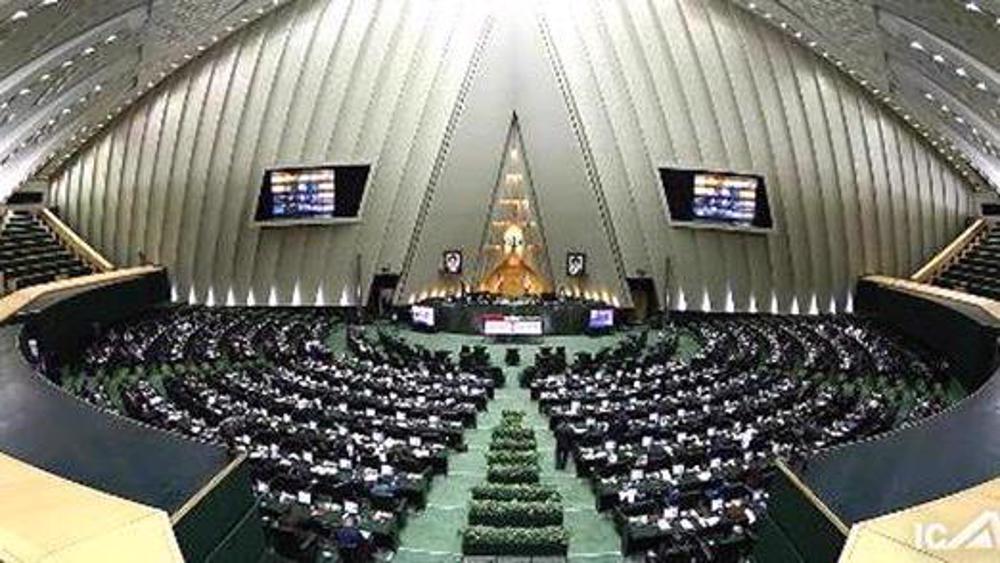
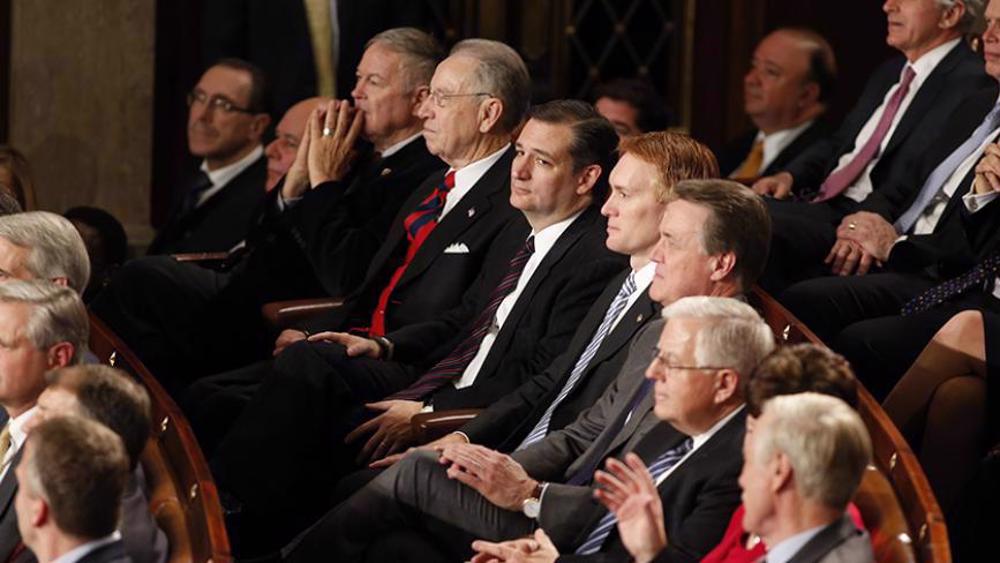

 This makes it easy to access the Press TV website
This makes it easy to access the Press TV website